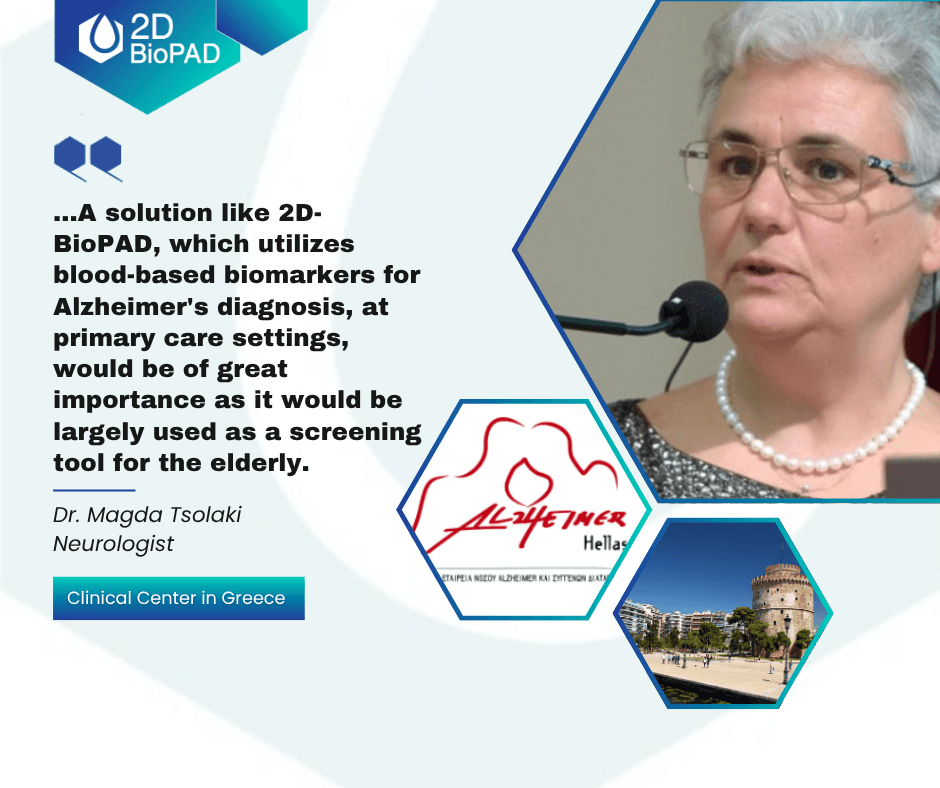
Tell us a few words about your organisation…
Alzheimer Hellas is a non-profit organization based in Greece dedicated to supporting individuals with Alzheimer's disease and other dementias, as well as their caregivers. It provides specialized services, including cognitive training, counseling, and public awareness initiatives, while also promoting research and advocacy for dementia-friendly policies.
… and what is your role in 2D-BioPAD?
Alzheimer-Hellas contributes as clinical partner to the development of user-friendly, intelligent decision-support systems while ensuring effective dissemination, communication, and innovation management strategies. It also supports knowledge dissemination, while playing a key role in project coordination, quality management, advisory board engagement, data management, and reporting.
What is the current status in diagnostics for AD using blood-based biomarkers in Greece?
In Greece, the use of blood-based biomarkers for Alzheimer's disease (AD) diagnosis is primarily in the research phase, with clinical implementation still emerging. Studies have identified potential blood biomarkers, such as amyloid beta ratio and phosphorelated tau proteins, which could facilitate to the earlier and less invasive diagnosis of AD. However, these findings are awaiting clinical validation to ensure their reliability and applicability in routine practice. The World Health Organization has recently published preferred product characteristics for blood-based AD diagnostics, aiming to guide the development of effective tests suitable for diverse healthcare settings, including those in Greece.
How would it assist you to have a solution like 2D-BioPAD in your clinical practice?
A solution like 2D-BioPAD, which utilizes blood-based biomarkers for Alzheimer's diagnosis, at primary care settings, would be of great importance as it would be largely used as a screening tool for the elderly. A Point-of- care device would indicate those in higher risk for dementia and refer them to the memory clinics earlier for proper management. It would facilitate personalized treatment plans based on biological data, enhancing the effectiveness of cognitive training and therapy. Additionally, it could help in monitoring disease progression, improving communication with patients and caregivers, and supporting evidence-based decision-making in clinical settings.
What do you believe would be the main benefits of 2D-BioPAD in AD clinical research?
The main benefits of 2D-BioPAD in Alzheimer's clinical research include enhancing early and accurate diagnosis through non-invasive blood-based biomarkers, enabling large-scale screening for at-risk populations. It would also support longitudinal monitoring of disease progression, improving the evaluation of therapeutic interventions. Additionally, it could accelerate biomarker validation and facilitate the development of personalized treatment approaches, ultimately advancing dementia research.